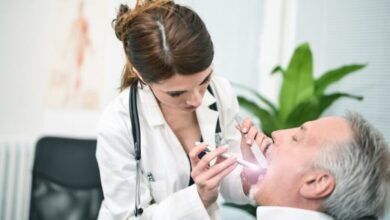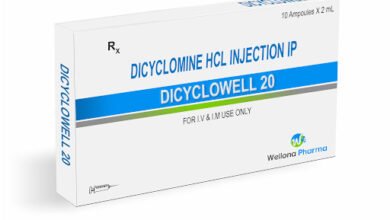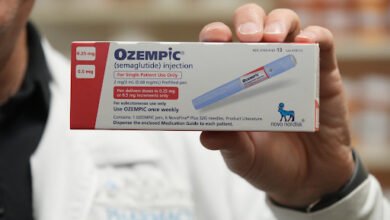What is Emphysema?
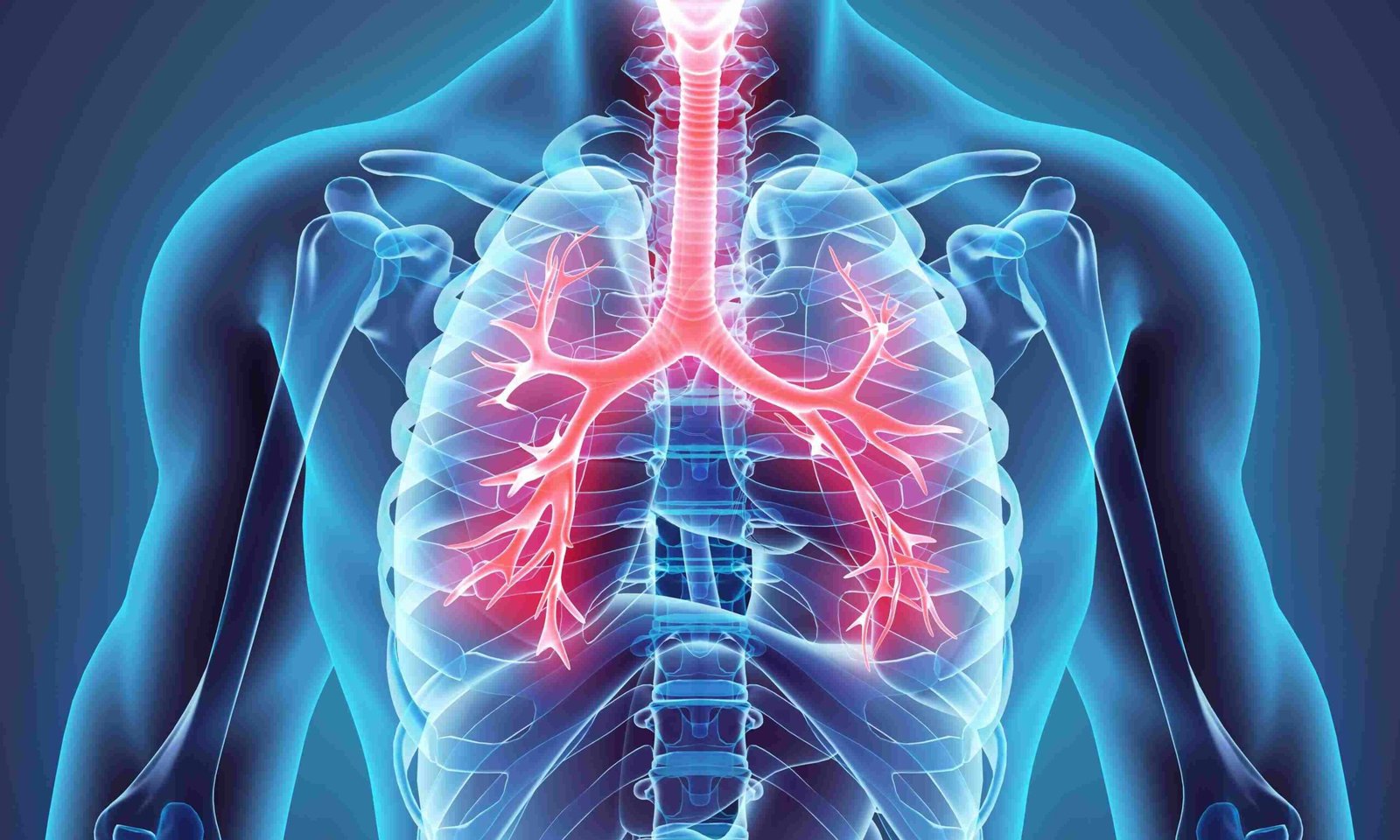
Emphysema is a lung condition that causes shortness of breath. It is a type of COPD.& It is a respiratory disease. With emphysema, lung tissue loses elasticity, and the air sacs and alveoli in the lungs become larger. In people with emphysema, the air sacs in the lungs (alveoli) are damaged.
Over time, the inner walls of the air sacs weaken and rupture — creating larger air spaces instead of many small ones. This reduces the surface area of the lungs. When you exhale, the damaged alveoli don’t work properly and old air becomes trapped, leaving no room for fresh, oxygen-rich air to enter. This makes it harder for your lungs to move oxygen in and carbon dioxide out of your body.
Normally, these sacs are elastic or stretchy. When you breathe in, each air sac fills up with air, like a small balloon. When you breathe out, the air sacs deflate, and the air goes out. This is a disease of the lungs that usually develops after many years of smoking. Along with asthma and chronic bronchitis, emphysema belongs to a group of lung diseases known as chronic obstructive pulmonary disease (COPD).
This damage is permanent and irreversible, but there are ways of managing the condition.& this is a progressive disease, which means it continues to get worse. As the condition progresses, the lungs lose their ability to absorb oxygen and release carbon dioxide. this usually results from exposure to toxins like cigarettes as well as air pollution, dust, chemical fumes, and irritants. Older adults are more likely to be affected and many people who have emphysema are not aware that they have it.
Emphysema does not affect the quantity of life, but rather quality of life. There are no studies that can predict life expectancy in individuals with emphysema.
What are the stages of Emphysema?
Emphysema staging helps determine how much lung damage is present and how severe it is.
FEV 1 Staging for Emphysema |
|
Stage |
FEV1 |
| I = mild | Greater than or equal to 80% predicted |
| II = moderate | Less than 80%, greater than 50% predicted |
| III = severe | Less than 50%, greater than 30% predicted |
| IV = very severe | Less than 30% predicted, or less than 50% in chronic respiratory failure |
*FEV = Forced Expiratory Volume
What are the symptoms of emphysema?

You can have emphysema for many years without noticing any signs or symptoms. People who develop emphysema have an increased risk of pneumonia, bronchitis, and other lung infections. See your doctor if any of these symptoms arise
- Shortness of breath, especially during light exercise or climbing steps
- Rapid breathing
- Sputum production
- Anxiety
- Ongoing feeling of not being able to get enough air
- Long-term cough or “smoker’s cough”
- Wheezing
- Long-term mucus production’
- Ongoing fatigue
- Shortness of breath, or dyspnea
- A chronic cough that produces mucus
- Wheezing and a whistling or squeaky sound when breathing
- Exhaustion
- Weight loss
- Depression
- Fast heartbeat
In the later stages, a person may have:
- Frequent lung infections and flare-ups
- Worsening symptoms, including shortness of breath, mucus production, and wheezing
- Weight loss and reduced appetite
- Fatigue and a loss of energy
- Blue-tinged lips or fingernail beds, or cyanosis, due to a lack of oxygen
- Anxiety and depression
- Sleep problems
Some people with emphysema get frequent respiratory infections such as colds and the flu. The symptoms of pulmonary emphysema may look like other lung conditions or health problems. In severe cases, emphysema can cause weight loss, weakness in your lower muscles, and swelling in your ankles, feet, or legs.
IMPORTANT POINTS:-
Advice during COVID -19
The symptoms of Covid-19 resemble the symptoms of COPD and emphysema. A person should contact their doctor if they have any unusual symptoms or a high fever.
They recommend taking full precautions to avoid exposure to the virus, including:
- Frequently washing the hands and encouraging others to do the same
- Avoiding people who may have had contact with the virus
- Frequently wiping surfaces
- Wearing a face covering such as a mask in public places
- Avoiding crowded gatherings
- Maintaining at least a 30-day supply of medication
- Keeping a stock of household necessities, including food and other basics
- Checking with local providers about plans to maintain oxygen supplies
Making a plan in case of sickness
What Causes Emphysema?

Smoking is the most common factor that influences that rate of breathing infections. Cigarette smoking not only destroys lung tissue, but it also irritates the airways. This causes inflammation and damage to cilia that line the bronchial tubes. This results in swollen airways, mucus production, and difficulty clearing the airways. All of these changes can lead to shortness of breath.
Exposure to air pollution, such as chemical fumes, dust, vapors, fumes, gases, and other chemicals or substances, or to indoor pollution. This includes irritating fumes, burning wood, smoke from home cooking, heating fuels, chemical fumes, environmental dust, and second-hand tobacco smoke can also lead to emphysema.
Infections of the respiratory tract can also destroy lung tissue and thus contribute to the development or worsening of emphysema. Likewise, having emphysema increases the likelihood of infection.
Genetic (inherited) factors (alpha-1 antitrypsin deficiency), and respiratory infections can also play a role in causing emphysema. In addition, not all people who smoke develop emphysema. It may be that genetic factors make some people more susceptible to the condition. Emphysema is not contagious. One person cannot catch it from another.
RELATED:-
Out of the box: What is innocent bystander effect?
The body has anti-trypsin enzymes that destroy the trypsin when the foreign substance is no more. In the case of the genetic alpha one antitrypsin deficiency, these enzymes continue to work unabated destroying normal adjacent lung tissue, resulting in emphysema. This is often referred to as the “innocent bystander” effect.
What are the risk factors for Emphysema?
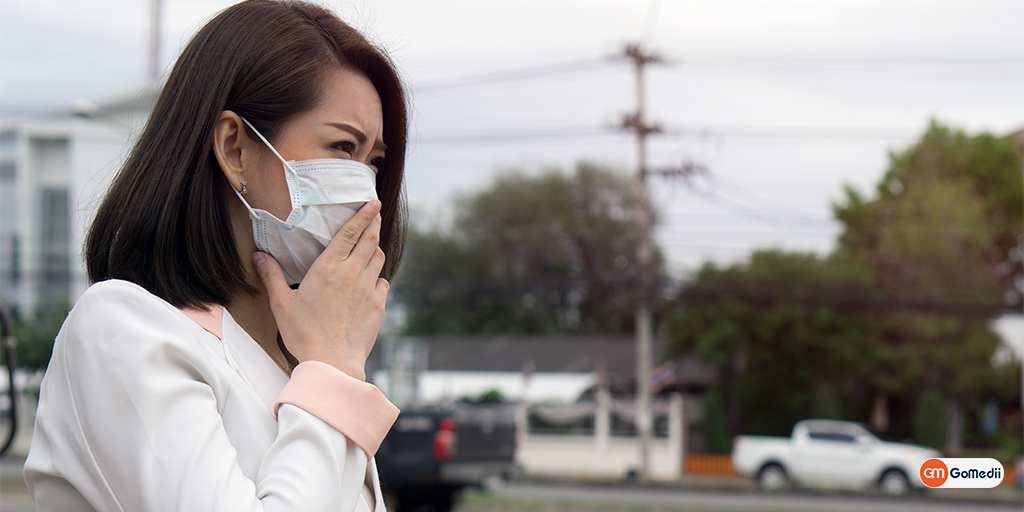
The major factors that increase the risk for developing emphysema are:
- This the main risk factor. Up to 75 percent of people who have emphysema smoke or used to smoke.
- Long-term exposure to other lung irritants, such as secondhand smoke(is smoke that you inadvertently inhale from someone else’s cigarette, pipe, or cigar.), air pollution, and chemical fumes and dust from the environment or workplace.
- Most people who have emphysema are at least 40 years old when their symptoms begin.
- This includes alpha-1 antitrypsin deficiency, which is a genetic condition. Also, smokers who get emphysema are more likely to get it if they have a family history of COPD.
- Occupational exposure to fumes or dust. If you breathe fumes from certain chemicals or dust from grain, cotton, wood, or mining products, you’re more likely to develop emphysema. This risk is even greater if you smoke.
- In the underdeveloped parts of the world, indoor air pollution primarily from open wood flames used for cooking is the primary mechanism for acquiring emphysema.
How is Emphysema diagnosed?

Your doctor will begin by getting your background and medical history, asking in particular if you are a smoker and if you are around hazardous fumes or pollutants at work or at home.
To make a diagnosis, your health care provider
- Will ask about your medical history and family history
- Will ask about your symptoms
- May do lab tests, include imaging, such as a chest X-ray or CT scan of the lungs, and arterial blood gas analysis, to assess oxygen exchange and carbon dioxide levels.
- If the person has never smoked but appears to have emphysema, the doctor may suggest testing for an alpha-1 antitrypsin deficiency.
- Can perform pulse oximetry, to measure the oxygen content of your blood
- Electrocardiogram (ECG), to check heart function and rule out heart disease
How can we prevent ourself from Emphysema?

To prevent emphysema, don’t smoke, and avoid breathing second-hand smoke. Wear a mask to protect your lungs if you work with chemical fumes or dust.
How is pulmonary emphysema treated?
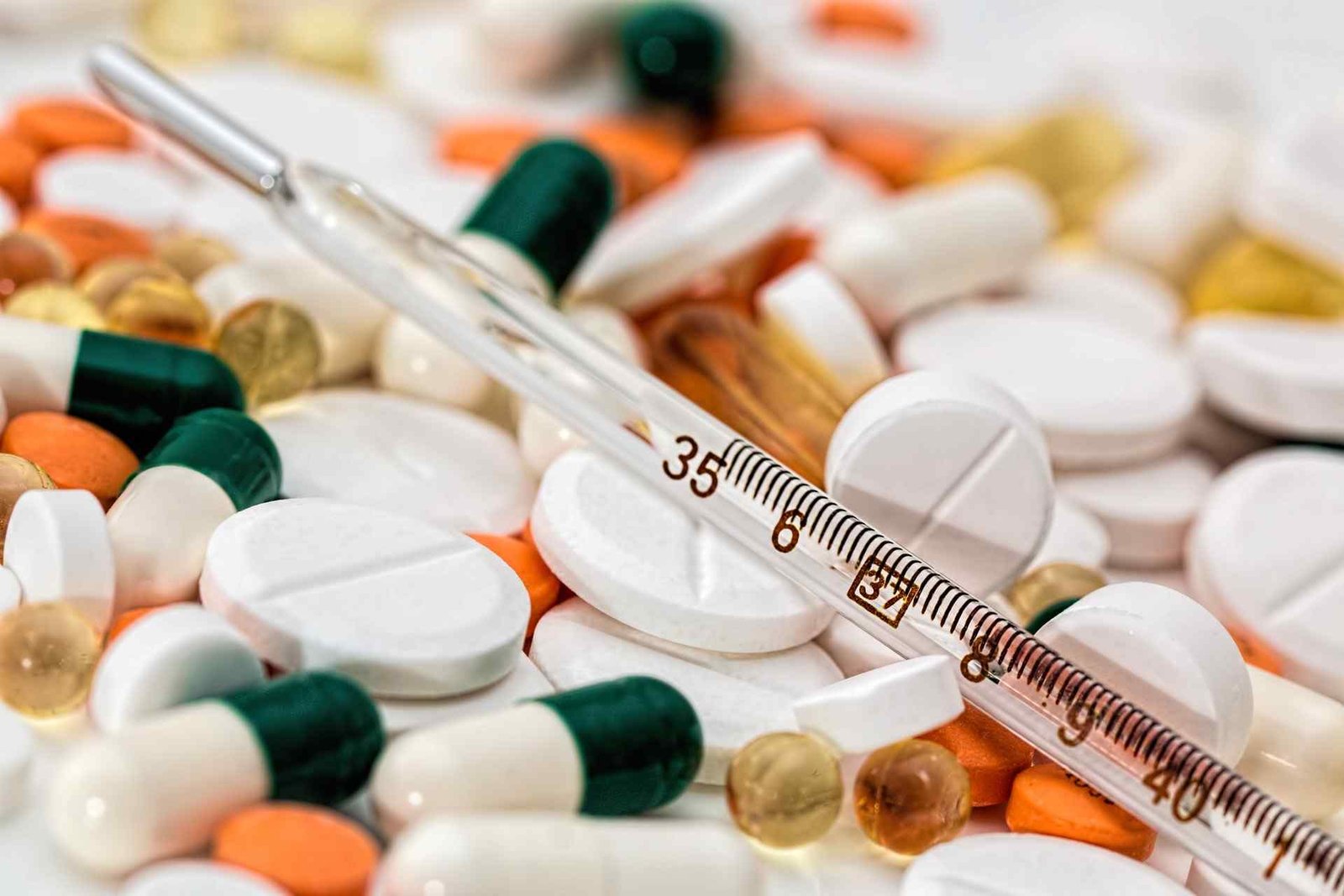
There is no cure for emphysema. The goal of treatment for people with pulmonary emphysema is to live more comfortably with the disease, control symptoms, and prevent the disease from getting worse, with minimal side effects. There is no way to repair or regrow the damaged lung tissue until now. but it can help:
- Slow the progress of the condition
- Manage the symptoms
- Prevent complications
- Boost a person’s overall health and well-being
1. Medication
- Bronchodilators, to help open air passages, making breathing easier and relieving coughing and shortness of breath
- Steroids, to alleviate shortness of breath
- Antibiotics, to fight infections that can make the condition worse
All of these medication can be taken orally or inhaled.
2. Surgery
Lung reduction surgery may be used to remove small parts of damaged lung, and a lung transplant can replace the entire lung. These are rare surgeries used only for people with severe emphysema.
3.Therapies
-
Oxygen Therapy
Patient’s disease progresses, it may be difficult to breathe on their own and may require supplemental oxygen.
-
Protein Therapy
Patients with emphysema caused by an alpha-1 antitrypsin (AAT) deficiency may be given infusions of AAT to help slow the progression of lung damage
Personal care/Lifetime therapies
- Having treatment and support to stop smoking
- Having a flu jab every year and a one-off pneumonia vaccination
- An exercise program called pulmonary rehabilitation if your breathlessness stops you doing things
- Having your own self-management plan
- Identifying and managing your other health problems, because most people with COPD also have other long-term conditions
- Taking medicine or combinations of medications to improve breathlessness and help prevent flare-ups
- Staying away from the smoke of others and removing other air pollutants from your home and workplace
Is there any vaccine available for emphysema?
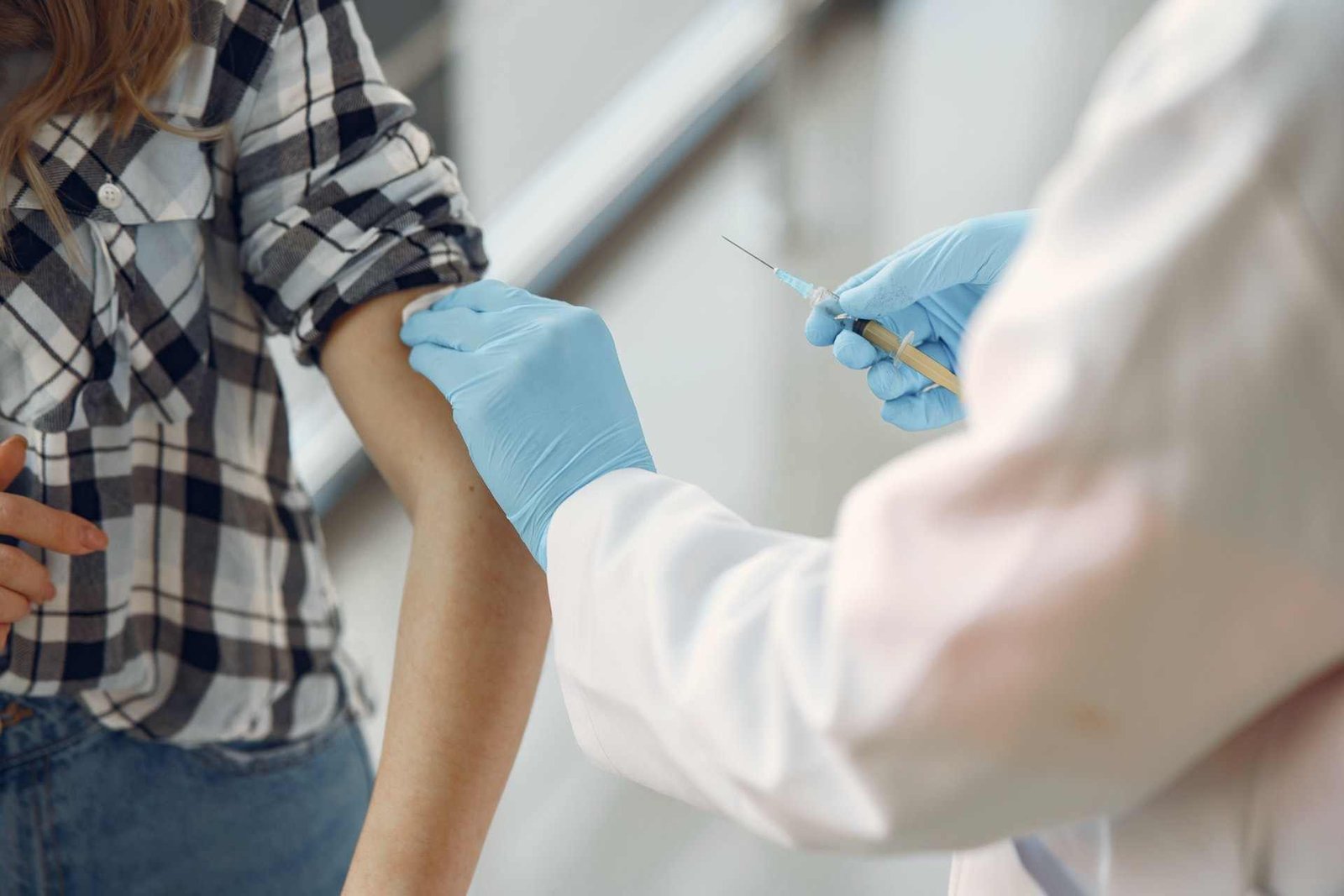
Although there is no vaccine available at all. Patients with emphysema should receive a flu shot annually and pneumonia shot every five to seven years to prevent infections.
What are the complications from Emphysema?
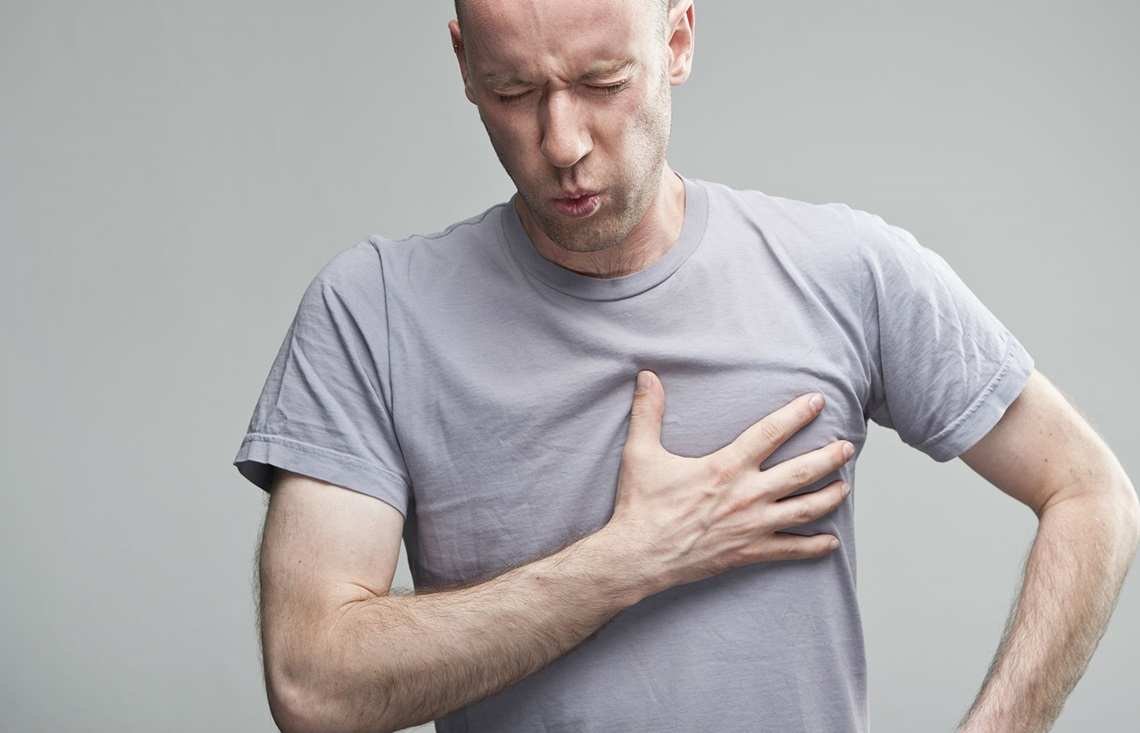
Complications of emphysema can include:
- Pneumonia – This is an infection of the alveoli and bronchioles. People with emphysema are more prone to pneumonia
- Collapsed lung – some lungs develop large air pockets (bullae), which may burst, resulting in lung deflation (also called pneumo-thorax)
- Heart problems – damaged alveoli, reduced number of capillaries, and lower oxygen levels in the bloodstream may mean that the heart has to pump harder to move blood through the lungs. Over time, this can place considerable strain on the heart.
Outlook
The outlook for people with emphysema varies based on its severity. There is no cure for the disease, and it gets worse with time, but you can slow its progression. As a rule, smoking cigarettes speeds up the disease, so quitting is important. Early detection of the disease is important because people with emphysema can develop life-threatening conditions when the lungs and heart become damaged over time.

